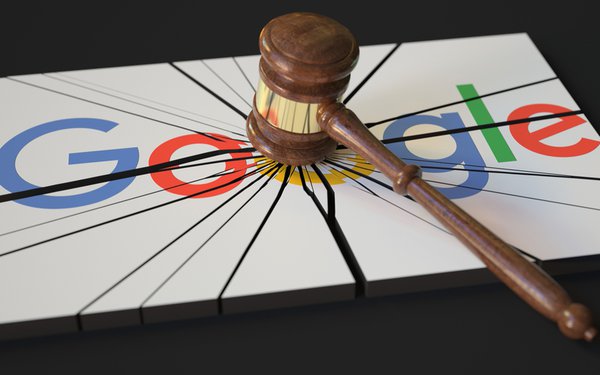
The U.S. Department of Justice asked a federal judge to
force Google to divest two key pieces of its advertising-technology business to address an illegal monopoly.
The plan filed in court on Monday makes Google two businesses, AdX, a digital ad
exchange, and DoubleClick for Publishers (DFP), its ad delivery system.
U.S. District Judge Leonie Brinkema ruled in April the Google’s combined businesses violates federal
competition laws across digital ad ecosystem and harms advertisers, publishers, and consumers.
Google filed its proposed remedies to the Court for the Eastern District of Virginia, and then in a
blog post published Tuesday outlined the details. Lee-Anne Mulholland, vice president of regulatory affairs at Google, explained that before the company can appeal the process, it is required to
outline remedies that respond to the court’s decision.
advertisement
advertisement
Google offered a proposal that addresses the Court’s findings, and would make it easier for publishers to use Google Ad
Manager with other ad tech providers, while minimizing disruption.
The full remedies proposal in this document is outlined here, but the
top three include:
1) Make real-time bid amounts for open web display ads from our ad exchange (AdX) available to all rival publisher ad servers;
2) Deprecate Unified Pricing Rules for open-web display ads, giving publishers the option to set different price floors for different bidders when using Google Ad
Manager;
3) Commit to not using “first look" and “last look” for open-web display ads. These auction dynamics were phased out of Google Ad
Manager years ago.
The trial is scheduled to take place in September.
Google is responding to a court filing that the DOJ released Monday evening that describes a three-step
approach that would reimagine how Google conducts business. It also could disrupt online advertising.
The DOJ’s plan would require that Google sell its digital ad marketplace AdX and
DoubleClick For Publishers. Google would need to open AdX’s real-time bidding data to rival ad servers via Prebid, an open-source tool for ad bidding.
The second phase requires Google
share code that determines the ad being served on a specific page, auction logic behind DFP making it open source. It would expose proprietary information such as how its ad auctions interacts with
the broader market and allow third parties to run the final auction.
The final phase requires a full divestiture of AdX and DFP. It would be overseen by a court-appointed trustee, and
subject to DOJ approval of the buyers.
Once the divestitures are complete, Google would be barred from operating any ad exchange for 10 years.